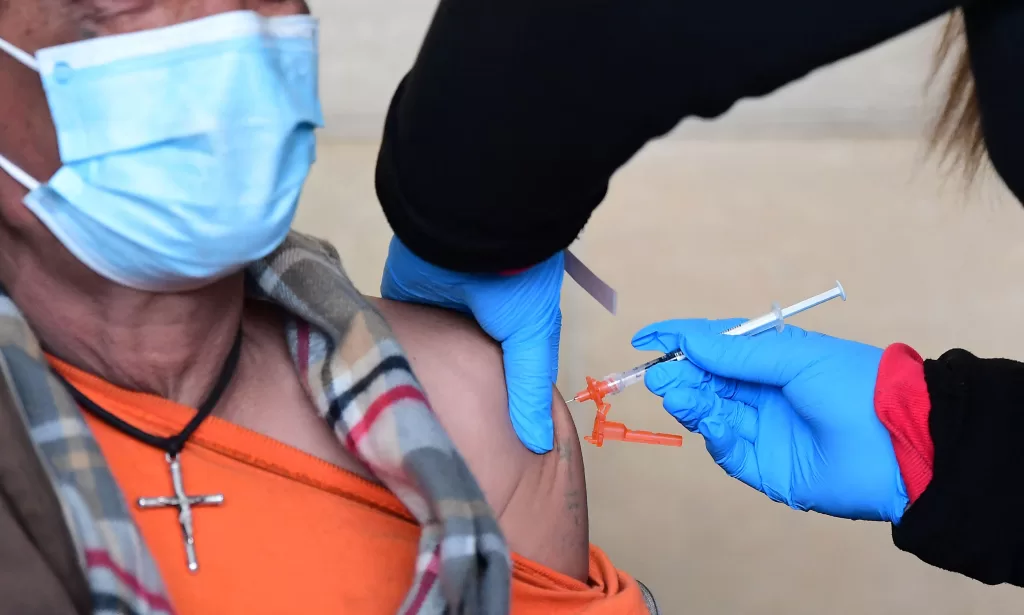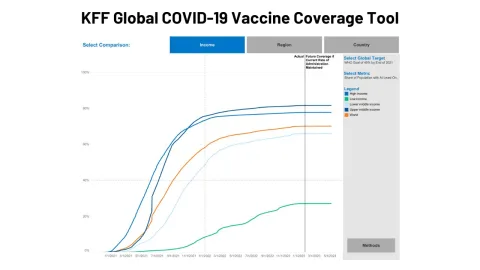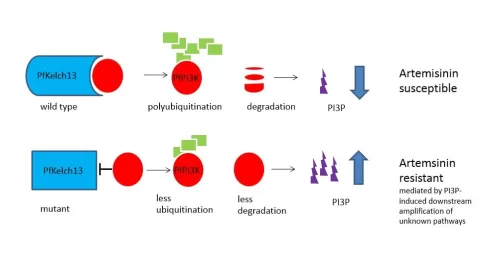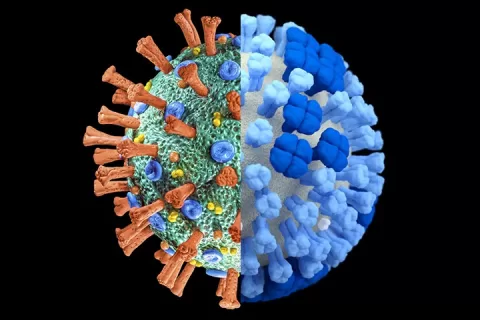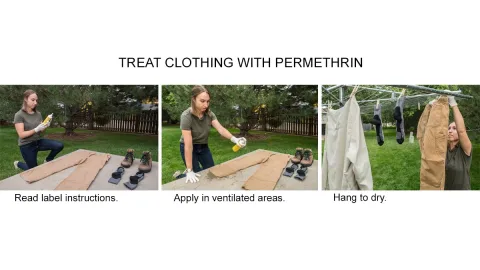The Trump vaccine policy has become a focal point of public discussion, highlighted by a recent Reuters/Ipsos survey that reveals a stark divide in American perceptions. Only 24% of respondents believe that the administration’s COVID-19 recommendations are rooted in scientific evidence, while many express doubts about their validity. Led by Robert F. Kennedy Jr., a figure known for his vaccine skepticism, recent changes have narrowed the scope of recommended vaccinations, raising concerns about access, particularly for children and pregnant women. This shift has prompted various medical groups to respond with their recommendations, igniting debates about public opinion on vaccines across the country. With only a small fraction supporting the federal stance, the implications for vaccine access and trust in health policies continue to evolve amid growing skepticism.
Exploring the landscape of vaccination strategies during the Trump administration reveals a significant impact on public health approaches. The administration’s COVID-19 guidelines have drawn attention to the contentious topics of vaccine hesitation and policy formulation, particularly with figures like Robert F. Kennedy Jr. leading the charge against traditional recommendations. As authorities redefine access to vaccinations, a notable number of citizens express concern over the implications for certain demographics, including children and pregnant women. This evolving debate not only highlights varying opinions across political lines but also underscores the crucial need for transparent, science-based health communications to restore confidence. Understanding the complexities of public sentiment around vaccine access and scientific credibility is essential in navigating future health initiatives.
Overview of American Perceptions on COVID-19 Vaccine Recommendations
The recent Reuters/Ipsos survey has highlighted a significant divide in American perceptions regarding the Trump administration’s vaccine policy. With only 24% of the respondents believing that the new federal recommendations are grounded in scientific evidence, skepticism remains rampant. This notable lack of trust in the recommendations could be attributed to several factors, including the political environment and the prominence of vaccine skeptics like Robert F. Kennedy Jr., who have influenced public opinion on vaccines. The perceptions of science and health held by the average American have been shaped greatly by both media narratives and political stances, leading to widespread questions about the integrity of governmental health policies.
Furthermore, the divide extends beyond mere skepticism; it encapsulates a broader public sentiment towards vaccine accessibility and related concerns. Many Americans appear wary of the narrowing of recommendations for who should receive COVID-19 shots, especially as recent policy decisions seem to exclude younger, healthy individuals. This has sparked a considerable debate on whether such measures truly prioritize public health or cater to political agendas, further complicating the landscape of vaccine acceptance amidst a pandemic.
The Role of Robert F. Kennedy Jr. in Vaccine Policy and Public Skepticism
Robert F. Kennedy Jr.’s position as the Health and Human Services Secretary has raised eyebrows and prompted discussions surrounding vaccine skepticism. As a longstanding critic of vaccines, his leadership on federal health policy has been met with both support and criticism. This is particularly evident in how he advocates for a more conservative approach in vaccine recommendations that restrict eligibility, which aligns with a growing faction of the population that questions the safety and efficacy of vaccines. His influence signals a shift in how public health responses are formulated, particularly regarding COVID-19, amidst increasing vaccine hesitancy.
Kennedy’s approach has sparked concern among medical professionals and health experts who advocate for broader vaccine access, particularly for vulnerable populations. This clash highlights the tensions in public health discourse, where personal beliefs can significantly impact policy decisions that affect the nation’s health. Critics argue that such skepticism may contribute to misinformation and discourage individuals from seeking vaccines, further complicating the fight against the pandemic as public trust in vaccines continues to wane.
Vaccine Access Concerns among Americans
In analyzing the concerns raised about vaccine access, the survey reveals that 48% of respondents are significantly worried about future availability for children. This worry is sharply divided along political lines, with a striking majority of Democrats expressing concern, while only a small fraction of Republicans share this anxiety. Such disparities in perception indicate a deepening rift in public opinion regarding health policies, as differing political ideologies heavily influence views on public health measures. This scenario sheds light on the critical need for transparent communication and effective outreach to dispel fears and misinformation.
The apprehension regarding children’s vaccine access also reflects broader issues regarding healthcare equity and the accessibility of vaccines overall. As some states have begun issuing executive orders to facilitate better access amid rising concerns, it is clear that localized responses may be necessary to address the unique challenges faced by various communities across the country. Such measures could play a crucial role in rebuilding public trust in health services, ultimately ensuring that those who are eligible for vaccines do not face barriers to access in a time of need.
Public Opinion on Vaccine Efficacy and Government Recommendations
Public opinion on vaccine efficacy continues to fluctuate, with significant skepticism directed at government recommendations, especially following the recent policy shifts endorsed by the Trump administration. The survey highlighted that nearly half of the respondents believe that the vaccine recommendations are not scientifically based, underscoring a critical loss of trust in federal health agencies. This distrust may be rooted in personal beliefs, political affiliation, and experiences with the healthcare system, leading many individuals to seek information and guidance from alternative sources.
As public opinion fluctuates, it is essential that health authorities actively engage with communities to provide factual, evidence-based explanations for vaccine recommendations. This engagement should focus on building rapport and addressing specific concerns that individuals may have, especially in light of figures like Robert F. Kennedy Jr. shaping narratives that contribute to vaccine skepticism. Ignoring these concerns could perpetuate a cycle of misinformation and distrust, ultimately undermining public health efforts.
The Impact of Political Division on Vaccine Trust
The political divide showcased in the polling data reveals an alarming trend in how vaccine trust may be influenced by partisan beliefs. As demonstrated, 48% of Democrats express significant concerns over vaccine access for vulnerable populations, whereas only a fraction of Republicans share similar views. This division not only affects public attitudes towards vaccine recommendations but also influences how healthcare policies are formulated and perceived. Understanding the ideological motivations behind such stark differences is crucial for public health officials who seek to navigate this complex landscape.
Moreover, the consequences of this political division extend beyond personal biases; they significantly affect the ethos surrounding public health campaigns. As Democrats and Republicans continue to develop divergent viewpoints on vaccine efficacy and safety, it becomes essential for health communication strategies to adapt to bridge these gaps. Effective public health messaging should not only aim to disseminate facts about vaccines but also to foster dialogue around common values that transcend political affiliations, thereby enhancing collective trust in the vaccine process.
Navigating Vaccine Misinformation in the Digital Age
In today’s information-rich environment, vaccine misinformation presents a formidable challenge that exacerbates public skepticism. The rise of social media and alternative news sources has facilitated the widespread spread of unfounded claims and conspiracy theories surrounding vaccines, complicating efforts to achieve community immunity. With influencers and skeptics like Robert F. Kennedy Jr. often gaining traction online, it becomes increasingly difficult for health authorities to cultivate an environment based on facts and scientific consensus.
To combat misinformation, public health officials must leverage digital platforms to engage directly with communities, providing clear, accessible information about vaccine safety and efficacy. Initiating conversations that confront myths head-on and reinforcing the importance of vaccination as a means of public health can empower individuals to make informed decisions. By addressing misinformation proactively and highlighting positive narratives around vaccination, public health campaigns can work towards restoring faith in vaccines and ensuring higher participation rates.
Encouraging Vaccine Uptake Through Targeted Education
To effectively address the pervasive skepticism surrounding vaccines, targeted education initiatives are paramount. Such programs should aim to reach specific demographics who harbor concerns about vaccine safety, particularly among parents apprehensive about vaccinating their children. Utilizing ambassadors from within those communities, such as trusted local figures, can help facilitate discussions that resonate with individual values and beliefs, ultimately fostering a more receptive environment for vaccine uptake.
In addition to community-oriented strategies, educational campaigns must be adaptable, providing resources that address specific fears such as those related to the new COVID-19 recommendations. Transparent discussions about the vaccination process, the science behind it, and the importance of community health can help demystify vaccinations. By creating open channels of communication, public health officials can better understand and address the nuanced concerns of various segments of the population, thus increasing overall vaccine confidence.
Legislative Responses to Vaccine Access Issues
In light of public concerns surrounding vaccine access, numerous states have begun to formulate legislative responses aimed at streamlining vaccine distribution. These initiatives reflect a growing recognition that equitable access to vaccines is fundamental in promoting public health. Some states have enacted laws to ensure that vaccine availability is prioritized for underserved communities, while others have introduced measures to enhance public outreach and education surrounding vaccination efforts.
Such legislative actions can play a crucial role in correcting disparities in vaccine access as seen in the recent survey, where many Americans voiced worries over the future accessibility of vaccines, particularly for children. By tailoring policies that take into account the socio-economic barriers faced by various populations, state governments have the opportunity to foster a more inclusive health landscape. These steps are vital for rebuilding trust in health systems and ensuring that all eligible individuals receive the care they require.
Future Directions for U.S. Vaccine Policy
As the country navigates the complexities of vaccine distribution and public perception, future U.S. vaccine policies must adapt to the evolving needs of the population. The recent polling data highlighting skepticism about federal recommendations calls for a reevaluation of how such policies are communicated and implemented. Future vaccine strategies should emphasize transparency, scientific integrity, and responsiveness to public concerns, potentially restoring faith in governmental health initiatives.
Furthermore, considering the significant impact of divisive politics on vaccination rates, a concerted effort to unify messaging across political lines is essential. Engaging stakeholders from various communities, including healthcare professionals, policymakers, and local influencers, can aid in crafting a coherent narrative that emphasizes collective health over partisan divides. This framework will be crucial in moving forward with effective vaccine policies that enhance trust and encourage widespread uptake.
Frequently Asked Questions
What are the key findings of the poll on public opinion regarding Trump vaccine policy?
A recent Reuters/Ipsos poll revealed that only 24% of Americans believe the Trump vaccine policy recommendations are based on scientific evidence. This includes a mere 5% of Democrats and 48% of Republicans, indicating a significant divide in public opinion on vaccine skepticism, especially with Robert F. Kennedy Jr.’s influence as a long-time vaccine skeptic.
How has Robert F. Kennedy Jr. influenced Trump’s vaccine policy?
Robert F. Kennedy Jr., serving as Health and Human Services secretary, has played a crucial role in shaping Trump vaccine policy, particularly by promoting vaccine skepticism. His leadership has led to more restricted recommendations regarding COVID-19 vaccinations, raising concerns among various medical and expert groups regarding public health.
What are the concerns related to vaccine access under Trump’s policy?
The Trump vaccine policy has sparked considerable concern about future vaccine access, particularly for children. The poll indicates that 48% of respondents worry about access issues, with Democrats expressing more alarm than Republicans. This has led to some states issuing executive orders to enhance vaccine accessibility amid national divides.
How do political affiliations affect opinions on Trump vaccine policy and recommendations?
Political affiliation significantly influences perceptions of Trump vaccine policy. The survey shows that 48% of respondents doubt the scientific basis of the new recommendations, with notable differences: 80% of Democrats express concern about future vaccine access compared to only 20% of Republicans, highlighting a stark divide in public opinion on COVID-19 recommendations.
What impact do recent changes in vaccine recommendations have on public trust?
Recent changes in vaccine recommendations under Trump’s policy have had a detrimental impact on public trust. Only 24% of Americans view these recommendations as fact-based, raising concerns about legitimacy and encouraging vaccine skepticism. This trust issue complicates public health efforts and raises doubts about the administration’s scientific grounding.
What demographic shows the most concern about vaccine access under Trump’s administration?
The demographic that exhibits the most concern about vaccine access under Trump’s administration includes parents and caregivers, particularly Democrats. According to the poll, 48% of all surveyed individuals are worried about children’s access to vaccines, with a significant majority of Democrats expressing this concern compared to Republicans.
| Key Point | Details |
|---|---|
| Polling Overview | Only 24% of Americans believe the Trump’s vaccine policy recommendations are based on scientific evidence, according to a Reuters/Ipsos survey. |
| Survey Details | The poll surveyed 1,084 US adults from September 5-9. |
| Political Divide | 48% of Republicans believe the recommendations are fact-based, compared to just 5% of Democrats. |
| Concerns Over Child Access | 48% of respondents express significant concern over vaccine access for children, showing a divide among political affiliations. |
| Individual Access Worries | 42% of individuals reported concerns about their own access to vaccines. |
| Margin of Error | The overall margin of error is 3 percentage points, with 6 points for Republicans and Democrats. |
Summary
The Trump vaccine policy has generated significant debate and concern among the American populace. With only a quarter of respondents believing the recent recommendations are scientifically grounded, it highlights a distrust in the administration’s approach to vaccination. The divide in public opinion reflects not only political affiliations but also deep-seated concerns regarding access to vaccines, especially for children. As states begin to navigate access and recommendations independently, it’s clear that the discussion around the Trump vaccine policy is far from over and will continue to evolve as more parents express their apprehensions.
The content provided on this blog (e.g., symptom descriptions, health tips, or general advice) is for informational purposes only and is not a substitute for professional medical advice, diagnosis, or treatment. Always seek the guidance of your physician or other qualified healthcare provider with any questions you may have regarding a medical condition. Never disregard professional medical advice or delay seeking it because of something you have read on this website. If you believe you may have a medical emergency, call your doctor or emergency services immediately. Reliance on any information provided by this blog is solely at your own risk.



